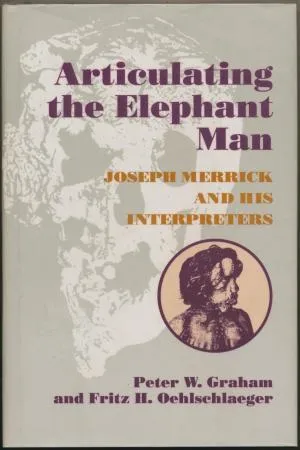Articulating the Elephant Man: Joseph Merrick and His Interpreters
By (author): "Fritz H. Oehlschlaeger, Peter W. Graham"
ISBN080184357X
ISBN139780801843570
AsinArticulating the Elephant Man: Joseph Merrick and His Interpreters
Original titleArticulating the Elephant Man: Joseph Merrick and His Interpreters (Parallax: Re-visions of Culture and Society)
The surgeon Frederick Treves and the anthropologist Ashley Montagu helped make him famous. Filmmaker David Lynch and playwright Bernard Pomerance made him a star. According to the popular press, singer Michael Jackson wanted to buy his bones from London Hospital. Stories about Joseph Merrick--the "Elephant Man" of Victorian England--combine elements of myth and fable, tragedy and melodrama, freak show and farce. And they seem to have perennial appeal. In Articulating the Elephant Man, Peter W. Graham and Fritz H. Oehlschlaeger examine how the phenomenon called "the Elephant Man" has been constructed and reconstructed--how Joseph Merrick has been transformed from a suffering individual into an exhibit, a shape-shifting curiosity whose different guises variously suit the needs of particular audiences, genres, and interpreters. Merrick's "presenters" have been a varied group of artists, medical experts, scholars, and biographers. But preceding them all is Merrick himself, no mere passive sufferer but an individual who bravely endured--and, when he had to, successfully exploited--his outrageous bodily disorder. According to Graham and Oehlschlaeger, each account--starting with Merrick's autobiographical pamphlet--blends description and creation, observation and self-revelation, and the selective recording, alteration, and suppression of details. Telling the story of the Elephant Man, whether as a drama, a film, a sequence of poems, or a medical case study, often reveals as much about the observer as it does about the subject. The Victorians' accounts of Merrick, for example, reflect that era's tendency to normalize the extraordinary, to colonize the exotic. For them, Merrick was both an ideal object of charity and a challenge to their most basic assumptions about humanity. In our own time, Merrick is cast as the ultimate outsider. If it was culturally convenient for the Victorians to patronize Merrick and congratulate his "benefactors," contemporary cultural biases
